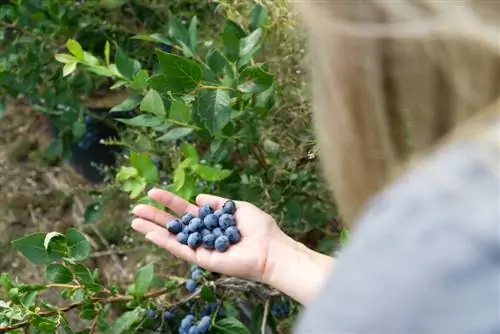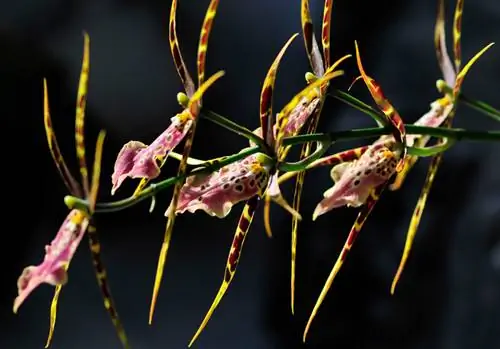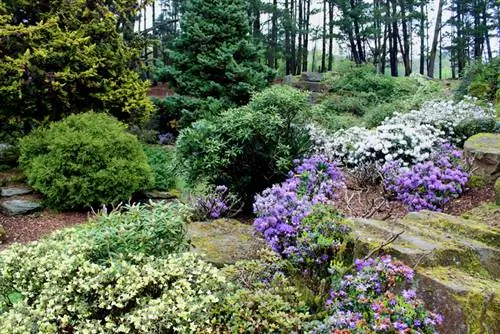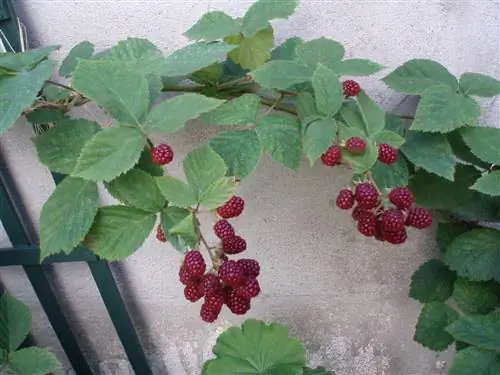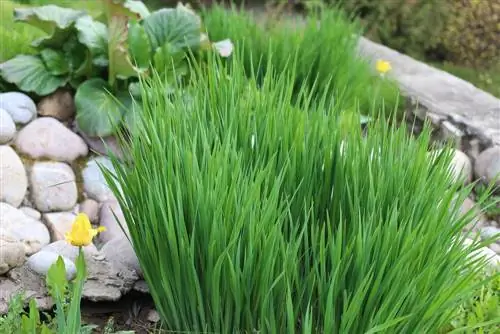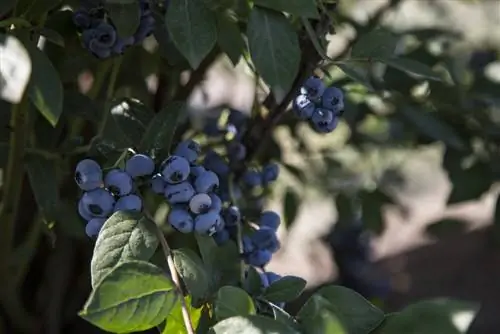- Author admin leonars@hobbygardeners.com.
- Public 2023-12-16 16:46.
- Last modified 2025-01-23 11:21.
Since many hobby gardeners these days only have relatively small garden areas or only a balcony at their disposal, the so-called columnar fruit is very popular. There are now more and more columnar fruit varieties available in specialist stores, but only a few of them are really suitable for growing in partial shade or shade.

Which columnar fruit can be grown in the shade?
The following types of fruit are suitable for growing columnar fruit in the shade: sour cherries, gooseberries, blueberries, blackberries, quinces and medlars. Under suitable conditions, these can also cope with less sunny locations.
Suitable columnar fruit varieties for more shady garden areas
While fruit varieties such as sweet cherries, apples and pears require warm and fairly sunny locations for he althy growth, the following types of fruit can also cope with a less sunny location under suitable conditions:
- Sour cherries
- Gooseberries
- Blueberries
- Blackberries
- Quinces
- Medlars
While sour cherries are also available as cultivars with columnar growth, blackberries, gooseberries and blueberries must be regularly reshaped as part of their care.
Getting the most out of a location
Even if there are only areas in a garden with a few hours of sunshine per day, you still may not have to give up on your dream of home-grown columnar fruit. In contrast to large fruit trees, columnar fruit trees in containers, with their limited height, can sometimes be placed close to the property line to neighbors as a privacy screen. This may make it possible to open up sunny locations that would not even have been considered for normally growing fruit varieties. However, you should also not underestimate the amount of heat and light that is reflected from a white-painted house wall. This can be sufficient to provide columnar fruit that is planted nearby and is actually mostly in the shade with sufficient light and heat.
Tip
With columnar fruit, so-called alternation can occur more than with other fruit trees, in which years of strong yield are often followed by years with a total lack of fruit. In a rather shady location, the motto applies even more that the fruit set should be thinned out in good time in order to enable a smaller amount of fruit to fully ripen under the suboptimal location conditions.

